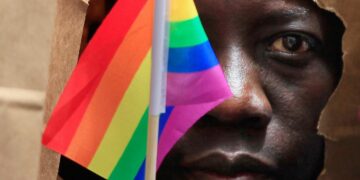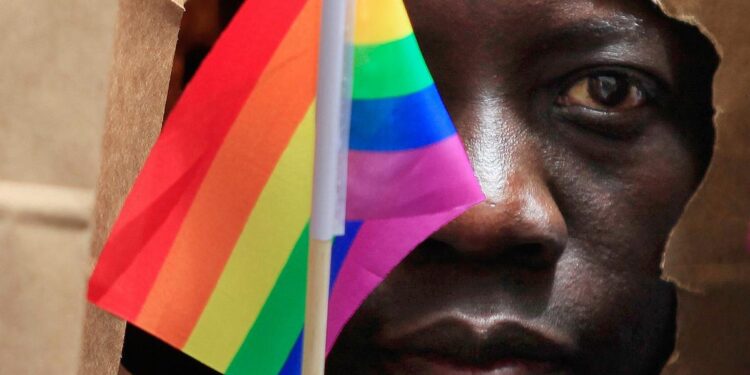By Lucy Adautin
Ghana’s Parliament has approved a new bill that mandates a prison sentence of up to three years for individuals convicted of identifying as LGBTQ+.
According to reports, the bill, passed on Wednesday, also stipulates a maximum prison term of five years for those involved in forming or financing LGBTQ+ groups.
Efforts to substitute prison sentences with community service and counseling were met with opposition from lawmakers.
This development reflects the increasing resistance to LGBTQ+ rights in the traditionally conservative West African nation.
The bill, which had the backing of Ghana’s two major political parties, will come into effect only if President Nana Akufo-Addo signs it into law.
He previously said that he would do so if the majority of Ghanaians wanted him to.
Gay sex is already against the law in Ghana, it carries a three-year prison sentence.
READ ALSO: Where Is Niger’s Mohammed Bazoum?
Last month Amnesty International warned that the bill “poses significant threats to the fundamental rights and freedoms” of LGBTQ+ people.
Activists express concerns about potential witch-hunts targeting LGBTQ+ individuals and advocates for their rights, fearing that some may be forced into hiding.
The bill proposes a prison sentence of up to 10 years for those engaged in LGBTQ+ advocacy campaigns directed at children. Furthermore, it encourages the public to report LGBTQ+ community members to authorities for “necessary action.”
According to MPs, the bill was drafted in response to the establishment of Ghana’s first LGBTQ+ community center in the capital, Accra, in January 2021. The center was subsequently closed by police following public protests and pressure from religious and traditional leaders in the predominantly Christian nation.
The Christian Council of Ghana and the Ghana Pentecostal and Charismatic Council said in a joint statement that being LGBTQ+ was “alien to the Ghanaian culture and family value system and, as such, the citizens of this nation cannot accept it”.
The legislation endorsed by legislators represents a diluted form of a previous draft. For instance, prison sentences have been reduced, and a contentious provision regarding conversion therapy has been omitted.
Throughout the extended deliberations, Alexander Afenyo-Markin, the deputy parliamentary leader of the governing party, proposed further changes.
He said lawmakers should decide, via a secret ballot, whether people convicted of being members of the LGBTQ+ community should be imprisoned by the courts or ordered to do community service and undergo counselling.
However, he was silenced by lawmakers who favored prison terms.



































